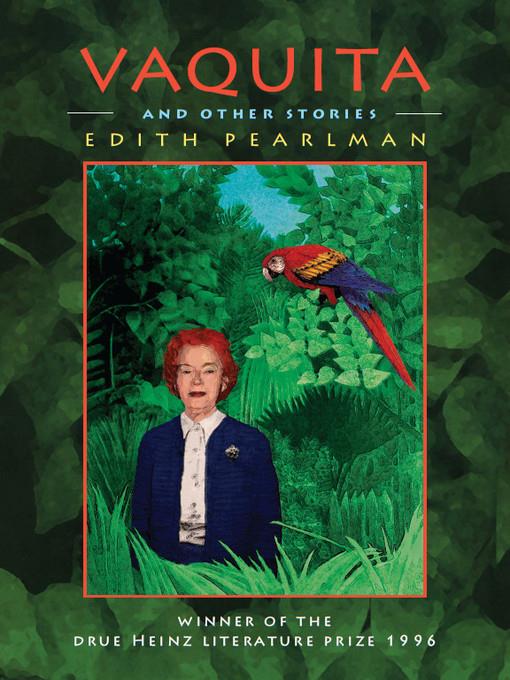
Vaquita and Other Stories
Pitt Drue Heinz Lit Prize
کتاب های مرتبط
- اطلاعات
- نقد و بررسی
- دیدگاه کاربران
نقد و بررسی

October 7, 1996
Set in locales as varied as a Boston soup kitchen and a nameless wartorn Central American country, the 15 stories in this debut collection gently delineate the interior lives of their thoughtful protagonists as they grapple with jealousy, longing, mortality and the desire to do good in a complicated world. Some of the tales are dark and fanciful, even creepy; others remain firmly entrenched in the everyday realities of middle-class life. What ties them together is the author's narrative restraint. Pearlman puts her characters through their paces, remaining always at a respectful distance. Mixing a dash of foreboding with a coolly observant eye, the stories share a matte texture in which the occasional bright turn of phrase sparkles all the more brightly: a worried mother, reunited with her lost child, takes relief "like an injection." An old man looks out a library window "so narrow that he like shooting from it." While Pearlman's use of language is often deft, many of these tales are disappointingly slight. Time and again, she piques the reader's curiosity by affording us a glimpse of a character's inner life, but then she lets the curtain fall much too soon.

October 15, 1996
Most of Pearlman's stories feature strong female characters whose solitary lives have been altered by unexpected encounters, illustrating truthfully how subtle incidents shape human lives. The diverse multicultural backgrounds of the plots add interest to the depth of characterization. These stories take the reader to a Cambridge train station, a Central American orphanage, and a Jerusalem apartment. Four interrelated stories about the manager of a soup kitchen for homeless women illustrate the collection's powerful thematic effect. Pearlman's collection has been awarded the 1996 Drue Heinz Literature Prize.--Joyce S. Bukowski, Erie Cty. Lib. System, Pa.

November 15, 1996
Age, class, ethnicity, and religion are axes of difference that are often also psychological and social barriers. The more effective stories here plot avenues of contact that lead characters across such barriers to acts of listening and recognition. In the title story, an aging Jewish physician on the brink of her retirement to Israel ponders the future of the less fortunate people in the unnamed Latin American country she has served, and in a moment of recognition and affiliation, she gives one of them a precious jewel she had earmarked for retirement. Several stories focus on Donna, who has spent six years running a soup kitchen for women and creating a community of listening, which her more determinedly upper-class physician fiancefinally appreciates. In "To Reach This Season," a grandfather visiting his son (currently a social worker in Central America) and grandson initially believes himself "the last Jew in a cursed land" but then imagines traces of Jewishness among the indigenous populace. ((Reviewed November 15, 1996))(Reprinted with permission of Booklist, copyright 1996, American Library Association.)

























دیدگاه کاربران